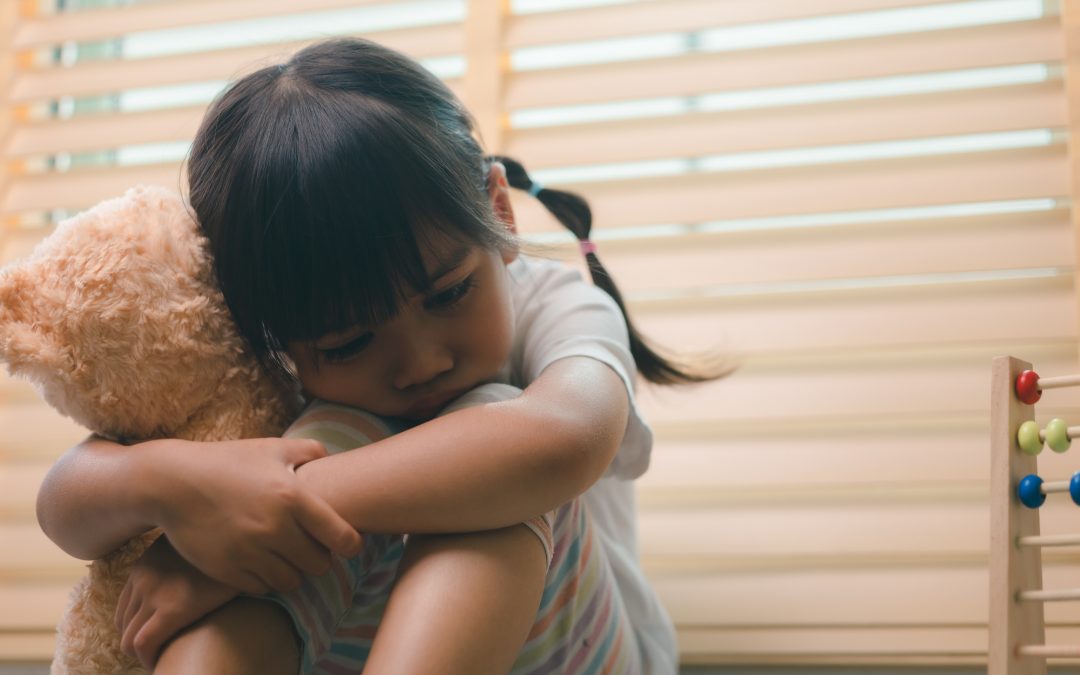There’s no question that trauma therapy for children can be a life-changer. During or after a traumatic event, kids need to know more than ever that adults care and that they are not suffering alone. Even if the event wasn’t traumatic for you as an adult, it could have lasting impacts on the mental health of a child. After a traumatic event occurs, the question often comes down to when a child can “bounce back” and when they may need more support from a professional in the form of trauma therapy (TF-CBT).
Most everyone has heard an adult marvel at how “kids are so resilient!” While it’s true that many children adjust to adverse events and circumstances surprisingly well, even the seemingly “toughest” kids should not be left to their own devices after experiencing trauma. Many will not just “get over it,” and providing the tools and support they need early is key.
Trauma types & what to watch for when you suspect child trauma
Every child is different, but generally speaking, trauma therapy for children is needed when it’s apparent a child is struggling with problems that can be clearly linked to one or more traumatic life experiences.
To get the most benefit from trauma therapy, the young person must have experienced a “remembered” trauma – that is, they must recall the event or events that traumatized them. Trauma does not have to be something particularly severe, like being physically attacked or witnessing a violent death, to do profound psychological damage.
Three types of trauma
-Acute trauma results from a single incident.
-Chronic trauma is repeated and prolonged, such as from domestic violence or abuse.
-Complex trauma is the exposure to varied and multiple traumatic events, which are usually invasive and interpersonal in nature.
Common Symptoms of PTSD in Young People
A child who’s been traumatized might show obvious signs of suffering from post-traumatic stress disorder (PTSD), depression, and/or anxiety, they might have started acting out and exhibiting behavioral problems, or they might show very few overt signs but still be suffering on the inside.
Common signs and symptoms of PTSD in young people include:
-Anxiety, sadness, anger, and irritability
-Avoiding trauma reminders; not “minding”; or exhibiting self-harming behaviors, inappropriate behaviors learned during trauma (e.g., sexual behaviors, bullying, aggression), or other severe unhelpful/harmful behaviors.
-Hypervigilance, poor sleep, getting startled easily, or suffering from stomach aches, headaches, and/or any other bodily issues that interfere with daily functioning
-Intrusive trauma-related thoughts and memories; holding unhelpful/harmful trauma-related beliefs, being seemingly disconnected from reality; experiencing psychotic symptoms or paranoia, or offering responses that seem unrelated to the situation
-Impaired relationships with family, friends, and peers; social withdrawal, a decline in concentration, performance, and/or attendance at school; impairment in attachment(s) or displaying a seeming loss of trust
Types of PTSD Symptoms
PTSD symptoms generally fall into four main categories:
–Re-experiencing. Having flashbacks of the trauma and/or thinking about it repeatedly in the present.
–Avoidance. Striving to ignore any and all thoughts and feelings about the traumatic event.
–Hyperarousal: Consistently experiencing feelings of irritability, anger, and paranoia that negatively affect one’s mood and disrupt one’s life.
–Negative cognitions/mood: Having difficulty feeling emotions; having memory problems; feeling estranged from others; holding negative views of oneself and/or the world.
Any young person who displays symptoms of PTSD can benefit from trauma therapy. A formal diagnosis is helpful, but not critical. The most important thing is to get professional help as quickly as possible after PTSD, depression, and/or anxiety symptoms are first noticed.
If in doubt, just reach out!
Ideally, for a traumatized child to get the most benefit from therapy, he or she should no longer be in an active trauma situation, but in a consistently safe environment.
However, this does NOT mean that someone who cares must wait to intervene on behalf of a child who’s being traumatized. When it’s clear that a young person is experiencing continued trauma exposure, IMMEDIATE CRISIS SUPPORT IS STRONGLY RECOMMENDED.
IMPORTANT: Abuse and neglect are serious issues that need to be handled with great care. In an emergency abuse situation, ALWAYS call 911 FIRST. Then, call the Florida Abuse Hotline at 1-800-962-2873 if needed. In a non-emergency situation, contact the Florida Abuse Hotline via phone, fax, or online to receive assistance.
You are not alone, Trauma Therapy for Children is Available
It can be tough to determine on your own whether a child needs trauma therapy. When in doubt, it’s best to turn to a mental health professional. He or she can meet with and assess the child, evaluate their unique circumstances and situation, and tell you for sure whether trauma therapy could help them. At Herrera Psychology, one of our trauma-focused CBT-trained therapists can assist in determining the best solutions for your young one.


